More than a century years ago, C. S. Peirce wrote that a man must be downright crazy to deny that science had made many true discoveries ([1903] 1997, 230). Nowadays, even more so than then, science is widely recognized as one of the marvels of the human intellect. It is our most reliable source of knowledge about the world. But what, if any, are the limits of science? Are there questions that will forever elude our best scientific efforts? And what is this thing we call science, anyway?
In discussions about the proper place of science, one often hears about an alleged sin called scientism. Science is a good thing, so the argument goes, but even good things can be pushed too far, beyond their proper limits. Can science settle all interesting questions? Should we leave room for other ways of knowing and understanding besides science, for example the methods employed in the humanities or in philosophy, or does science rule supreme in all these domains?
The limits of science is a topic of public interest, as witnessed by a spate of articles in popular magazines and blogs, such as the widely read discussion between Steven Pinker (2013) and Leon Wieseltier (2013) in the New Republic, op-eds by Ross Douthat in the New York Times and Oliver Burkman in the Guardian, or popular books by Alex Rosenberg (2011), Sam Harris (2011), and Susan Haack (2007). More academic discussions of scientism include book-length treatments by Tom Sorell (2002) and Joseph Margolis (2003), and a recent volume criticizing scientism as the new orthodoxy (Williams and Robinson 2014).
All these authors use the concept of scientism in one way or another, but there is little agreement on its definition. At a first approximation, current usage suggests the following characteristics: (1) an excessive deference toward the deliverances of science and anything to which the honorific label scientific is attached; (2) brazen confidence in the future successes of scientific investigation, for example in arriving at a Theory of Everything, or in solving every interesting question about reality; (3) the conviction that the methods of science are the only worthwhile modes of inquiry, and will eventually supplant all others; (4) the thesis that other disciplines should be either subsumed under science or rejected as worthless; (5) the thesis that all ways of acquiring knowledge and understanding are (or should be) scientific in nature, and hence there is no interesting difference between science and other forms of inquiry.
Given the ubiquitous usage of the term in a wide variety of contexts, we think a frank philosophical discussion about the limits and proper place of science is long overdue. This volume explores the relationship between science and other ways of knowing, and the possible value of a concept like scientism to describe various forms of (excessive) science enthusiasm. It provides a forum for philosophers and scientists, both detractors and enthusiasts of Science Unlimited, to talk about the nature and scope of science.
Demarcation Problems
The question of the demarcation between science and nonscience has fascinated philosophers ever since Karl Popper ([1959] 2002) proposed the criterion of falsifiability as the distinguishing hallmark of good science. As it is traditionally understood, the demarcation problem concerns the borders between science and pseudosciencethat is, theories that pretend to be scientific, but do not live up to the standards of good science. We have put together a volume on this classical demarcation project, breathing new life into an old chestnut that had been prematurely pronounced dead by some philosophers of science (Pigliucci and Boudry 2013).
But there is another, related demarcation problem shimmering through in Poppers writing on the subject, even though he did not always keep the two demarcation jobs apart (Boudry 2013). This is the conceptual separation between science and other epistemic endeavors that are valuable in their own right. It concerns neighboring academic disciplines, such as history, philosophy, and mathematics, but also metaphysics and everyday knowledge acquisition. This volume deals with this second demarcation project: not the one that tries to distinguish science from its phony contenders, but the one of figuring out the limits of science itself. In this sense, the pages that follow provide a suitable companion to our earlier collection, Philosophy of Pseudoscience.
There is another way to spell out the link between the two demarcation problems in philosophy of science. Pseudoscience is a form of fools gold: it looks like the real thing, but on closer inspection it turns out to be worthless. The problem with pseudosciences like astrology, homeopathy, and creationism is that they are lacking in scientific rigor; they fail to gain the evidential support we demand from science. The problem with scientism, by contrast, can be seen as an excess of science. To be guilty of scientism is to be overly deferential toward science, to unfairly disparage other disciplines like the humanities or philosophy, or to have an inordinate confidence in the future successes of science.
Still, how much of science is too much? And how far exactly can science venture before it overreaches? In discussions about its proper purview, a variety of authors have pronounced several domains and types of questions off-limits to science: ethics, subjective experience, abstract entities, intuitive knowledge, qualia, transcendence, metaphysics, and of course God. If it is true that science cannot penetrate those realms, does that mean that there are other ways of knowing, perhaps on an equal par with science, that can proffer insight into them?

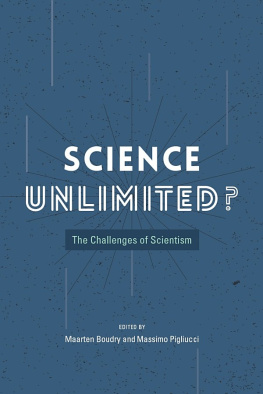
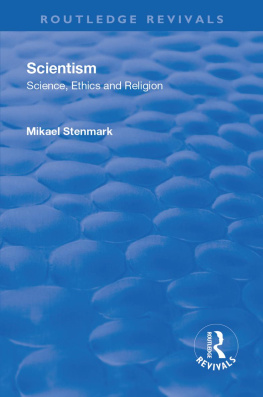

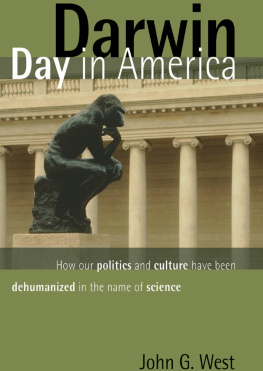
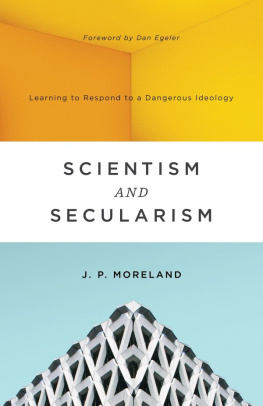
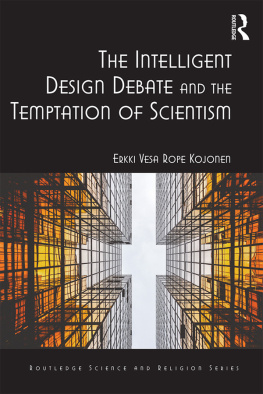
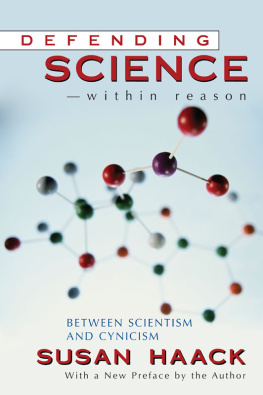
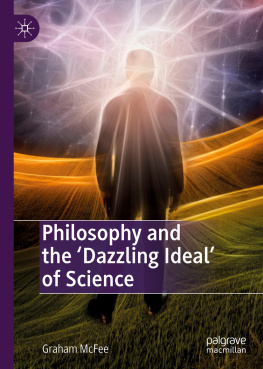
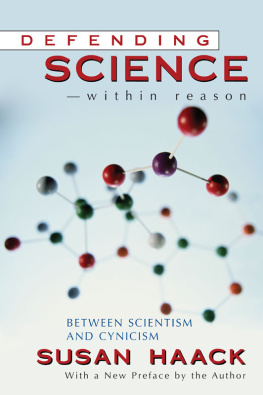


 This paper meets the requirements of ANSI/NISO Z39.481992 (Permanence of Paper).
This paper meets the requirements of ANSI/NISO Z39.481992 (Permanence of Paper).